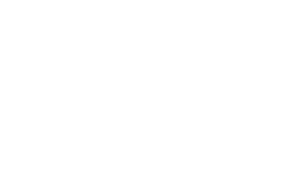India PM Singh says internal security a major challenge
- Published

The Maoists say they are fighting for the poor and landless peasants
India's internal security remains a major challenge and the threat from Maoist rebels requires constant attention, PM Manmohan Singh has said.
He told a key meeting of state chief ministers that although the internal security situation had improved since February 2011, dangers remained.
Mr Singh said that "terrorism, religious fundamentalism and ethnic violence" needed to be tackled firmly.
Co-operation from states was necessary to combat such threats, he added.
West Bengal state Chief Minister Mamata Banerjee did not attend the meeting amid reports that she was unhappy over a controversial proposal to set up a national counter-terrorism centre.
Instead, the state is being represented by its finance minister, Amit Mitra.
'Long way to go'
"The so-called 'protracted people's war' waged by the left-wing extremists against the state and society continues to target civilians and security forces, and economic infrastructure such as railways, mobile communications and power networks," Mr Singh said in his <link> <caption>inaugural speech at the conference</caption> <url href="http://pmindia.gov.in/speech-details.php?nodeid=1165" platform="highweb"/> </link> on Monday morning.
"In the recent past, Maoists have also resorted to abducting foreign nationals," the prime minister said, referring to the recent kidnapping of two Italian tourists in Orissa state. The hostages have now <itemMeta>news/world-asia-india-17686504</itemMeta> .
Mr Singh said 2011 was a better year than 2010 in terms of the number of deaths caused by Maoist rebels, but added there was still "a long way to go".
The prime minister also warned that "terrorist groups are today more nimble, more lethal than ever and increasingly networked across frontiers".
Home Minister P Chidambaram, who addressed the meeting before the prime minister, described the left-wing extremism of Maoist rebels as "the most formidable security challenge facing the country" even as the traditional insurgencies in Indian-administered Kashmir and the north-east have declined.
Mr Chidambaram said the fight against the Maoists in at least nine states was hampered by a lack of resources.
Many of the states have criticised the home minister's proposal last year to set up a national counter-terrorism centre saying it was against the spirit of the federal system in the country.
Mr Chidambaram says it is needed to fight various security threats in a unified way.
The Maoist insurgency which began in the late 1960s has been described in the past by the prime minister as India's "greatest internal security challenge".
The rebels say they are fighting for the poor and landless peasants.
They are active in more than a third of India's 600-odd districts across the states of Jharkhand, West Bengal, Orissa, Bihar, Chhattisgarh, Maharashtra, Andhra Pradesh and also parts of Uttar Pradesh and Karnataka.
More than 6,000 people have died in the rebels' fight for communist rule in these states.
- Published12 April 2012
- Published4 March 2011
- Published22 November 2011